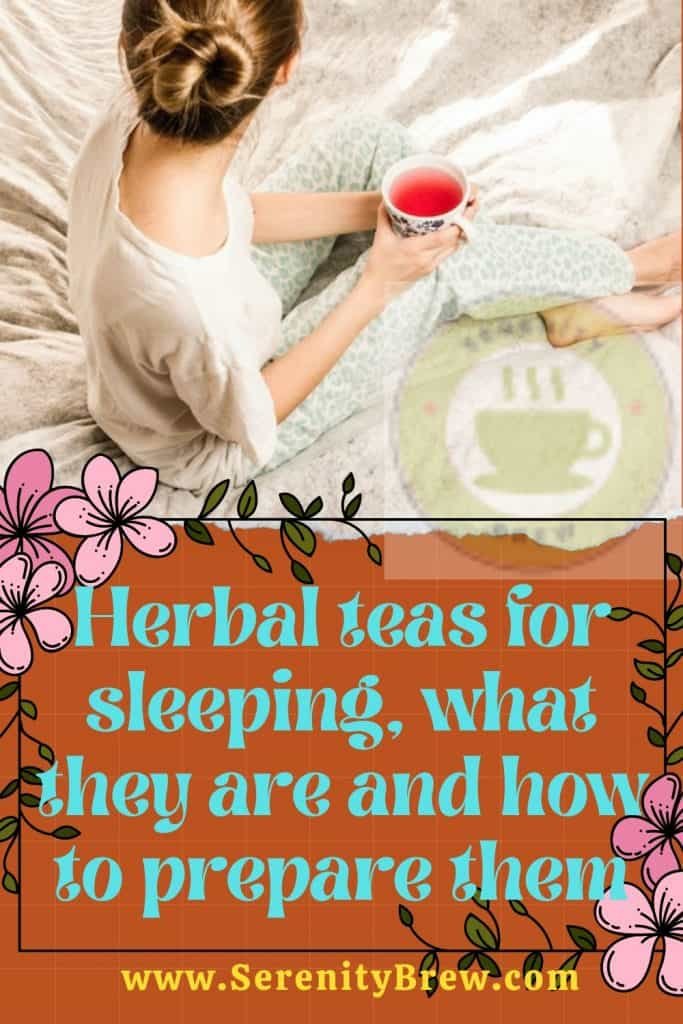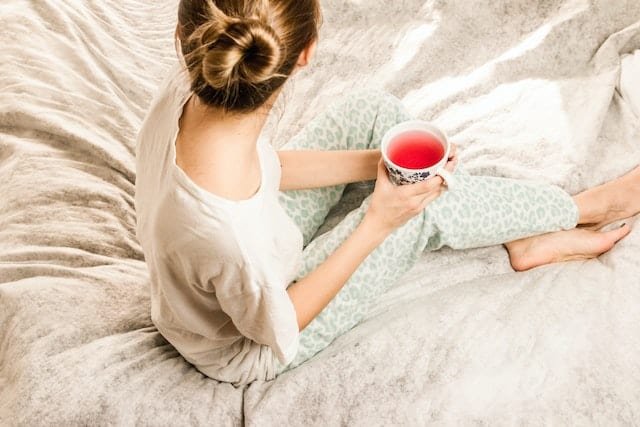
One of the many cuddles that can accompany the pre-sleeping ritual is to prepare a good herbal tea. These become a good habit that reconciles sleep and psycho-physical relaxation. Let’s find out which are the most suitable ingredients and the recipes to prepare them.
Why drinking herbal tea helps you sleep
Warming the stomach with a hot drink generally already predisposes well to relaxation, because the stomach is helped to complete its digestive phase, it warms its walls and sends a muscle-relaxing message to its meridian which also runs along the legs. The Earth element needs heat to loosen mental clods, to soften mental rigidities and ruminations.
The liver in turn receives the beneficial effects of heat and relaxation of the stomach, is sedated and ensures that blood and energy are accumulated in different points when the body is at rest. To quell the Wood element means to quell vivacity, intemperance, impetuosity, anger, wakefulness and thus prepare for a good quality sleep.
The herbal tea therefore also acts on a subtle level, starting from a physical solicitation, precisely “Earth”, to rise to an energetic, vibrational approach.
Inside the herbal tea

Of course, inside an herbal tea there is water, a fundamental vector element. But the water, its temperature and the way it extracts the active ingredients of the blends also makes the difference. An herbal tea can be prepared by infusion or by decoction, usually the herbalist provides the right indications on how to proceed based on the chosen herbs.
The infusion requires boiling water to be poured over the remedy to extract the active ingredient, the mixture is mixed and left to rest for some time, from 5 to 20 minutes depending on the selected plant. A lid is recommended in order to preserve the volatile substances. For the infusions, tender parts of the plant such as flowers or leaves, well chopped, are recommended.
Once the maceration times have elapsed, the herbal tea is filtered and will be ready to be consumed. Decoction, on the other hand, requires the herbal remedy to be immersed in boiling water. In this case, the harder parts of the plant are indicated, such as the roots, the bark, the seeds or some particularly leathery leaves, which require a longer immersion.
This extraction method is not suitable for aromatic plants rich in particularly volatile essential oils or heat-sensitive herbs whose active ingredients would be rendered inactive by heat. An excellent solution is to precede the decoction with maceration in cold water for a couple of hours, thus allowing the slow and complete release of all the components of the remedy.
At the end, the herbal tea thus created is filtered and made available. Honey is particularly suitable for sweetening, because it has a calming and emollient action that goes well with the purpose of a herbal tea for sleeping, in synergy. To promote sleep some herbal remedies can be:
- Passionflower: calming, sedative properties
- Hops: hypnotic, digestive and purifying properties
- Poppy: hypno-inducing properties, sedative of anxious states
- Melissa: sedative and antispasmodic properties
- Chamomile: sedative, anti-inflammatory and spasmolytic properties
- Hawthorn: sedative properties of anxious states
- Valerian: hypno-inducing properties, and sedative of states of agitation
Hop decoction (Humulus lupulus – cones)
30 grams of hop cones to boil in a liter of boiling water for a few minutes. Leave to rest and filter. Sedative properties against insomnia and hyperexcitability, stomachic (promotes digestion, secretion of gastric juices), purifying the liver.
Poppy infusion (Papaver rhoeas – flowers)
Infuse 20 grams of poppy flowers with boiling water (1 litre), leave to rest for 5 minutes and filter. Bechic properties (relieves cough), diaphoretic (promotes perspiration) and sedative to facilitate sleep.
Melissa infusion (Melissa officinalis – leaves)
Infuse 20 grams of Melissa leaves with a liter of boiling water, leave to rest for 10 minutes and filter. Sedative properties against insomnia, spasmolytics, choleretic (promotes the secretion of bile), stomachic.
Chamomile infusion (Camomilla matricaria – flower heads)
Infuse 30 grams of Chamomile flower heads with boiling water (1 litre), leave to rest for 10 minutes and filter. Antispasmodic, sedative, anti-inflammatory, healing and emollient properties.
Hawthorn infusion (Crataegus oxyacantha – flowering tops)
Infuse 20 grams of Hawthorn flowers in a liter of boiling water, leave to rest for 15 minutes and filter. Hypotensive, sedative, anxiolytic, spasmolytic, cardiotonic and muscle relaxant properties.
Infusion of Valeriana officinalis (root) and Passiflora incarnata (aerial parts)
Infuse 25 grams of valerian and 25 grams of passion flower with a liter of boiling water, leave to rest for 10 minutes and filter. In synergy, the properties of this herbal tea are sedative for anxiety and insomnia, antispasmodic, antineuralgic.
